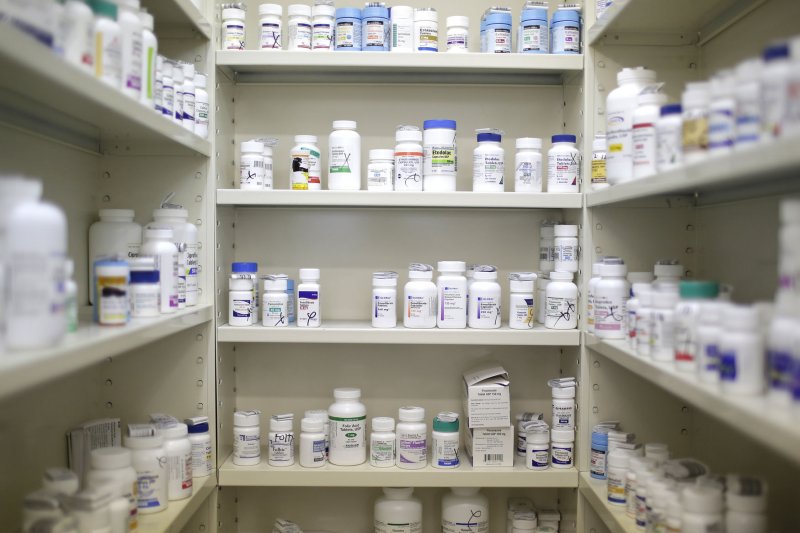A new study has found that many cancer survivors are changing or skipping their prescription medication use due to financial reasons. File photo by John Angelillo/UPI |
License Photo
Feb. 20 (UPI) -- A new study has found that many cancer survivors are requesting cheaper medications or skipping doses altogether due to the high cost of the drugs.
In the study to examine prescription medication use in cancer survivors, researchers from the American Cancer Society, the Centers for Disease Control and Prevention and the National Institutes of Health examined data from 2011 to 2014 from the National Health Interview Survey.
The survey, conducted annually by the CDC, included 8,931 cancer survivors and 126,287 participants with no history of cancer.
Results showed that 31.6 percent of adults who had been recently diagnosed with cancer and 27.9 percent who had been previously diagnosed with cancer in the last two years changed their prescription drug use due to financial reasons. This was compared to 21.4 percent of adults without cancer who reported changing prescription drug use because of financial reasons.
"Specifically, non-elderly cancer survivors were more likely to skip medication, delay filling a prescription, ask their doctor for lower-cost medication, and use alternative therapies for financial reasons compared with non-elderly individuals without a cancer history," Ahmedin Jemal, Ph.D., of the American Cancer Society and senior author of the study, said in a press release.
The study found that one-third of non-elderly cancer survivors with high-deductible health insurance plans requested lower-cost medications from their doctors, compared to less than one-fifth of cancer survivors with low-deductible plans.
Research also showed changes in prescription drug use for financial reasons was the same in elderly cancer survivors and elderly patients with no history of cancer due to uniform coverage through Medicare.
"Healthcare reforms addressing the financial burden of cancer among survivors, including the escalating cost of prescription drugs, should consider multiple comorbid conditions and high-deductible health plans, and the working poor," Jemal said. "Our findings also have implications for doctor and patient communication about the financial burden of cancer when making treatment decisions, especially on the use of certain drugs that cost hundreds of thousands of dollars but with very small benefit compared with alternative and more affordable drugs."
The study was published in the journal Cancer.















